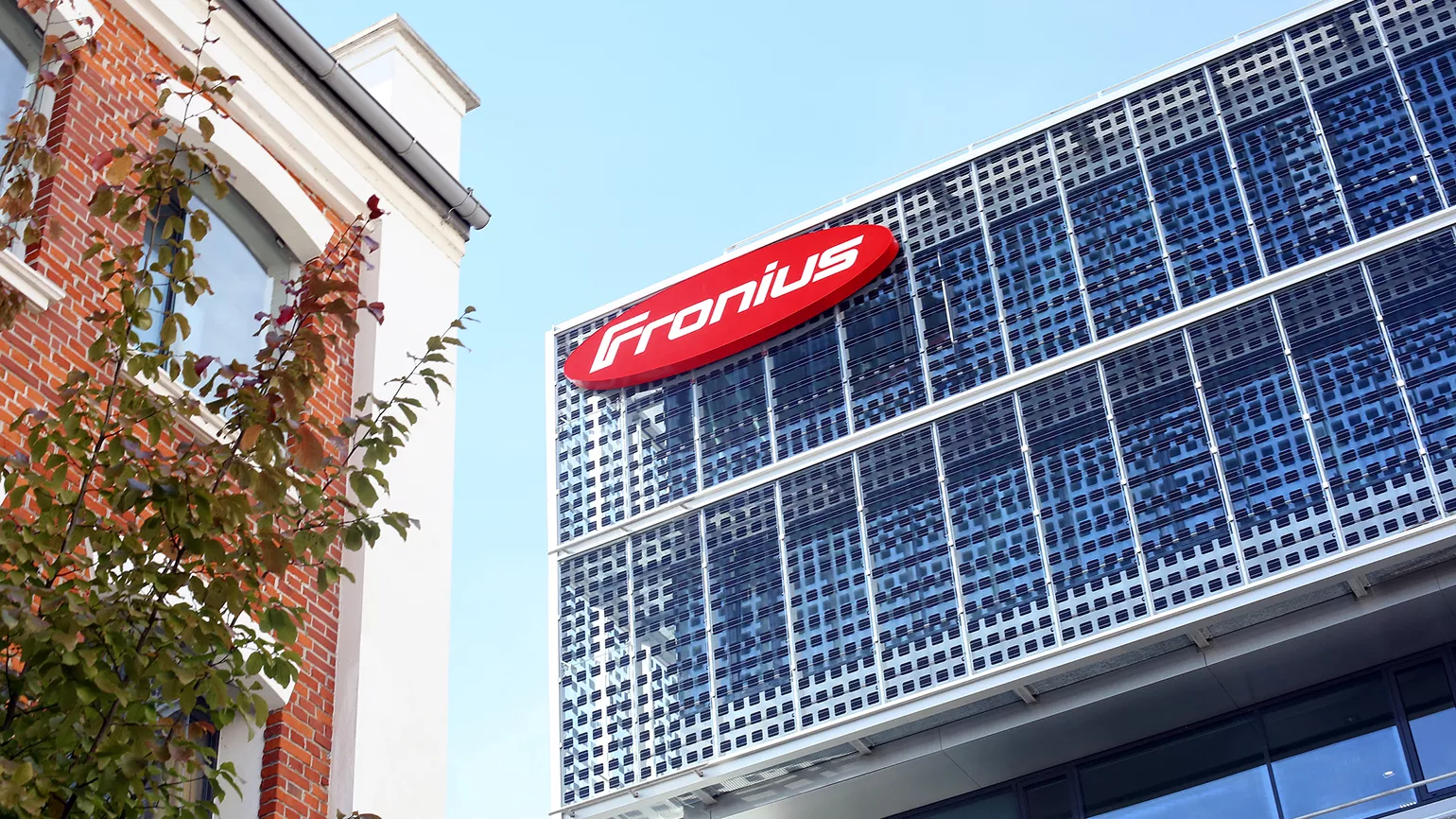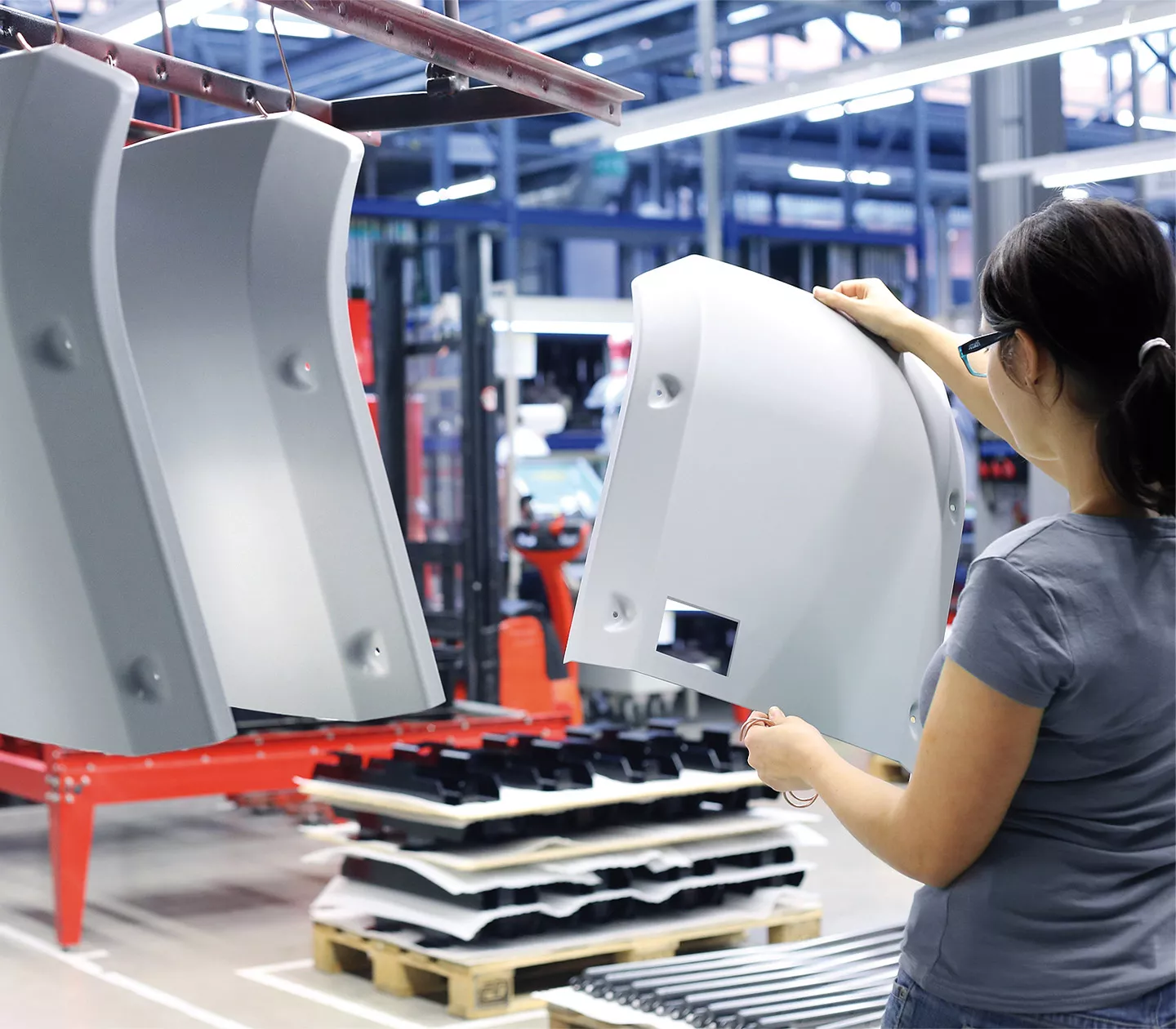Sustainability - just another empty phrase?
Fronius is truly committed to sustainability. With our vision of 24 hours of sun and a world in which 100% of our electricity needs are met through renewable energy sources, achieving a sustainable energy supply has become one of the main reasons for our very existence. But is it enough? Does having a grand vision and being a part of the renewable energy sector really give us a right to call ourselves sustainable? Or do we need to do more? And if yes, then what does this mean for our company?

Why we should take a holistic approach to sustainability
The energy revolution is a decisive step in the battle
against climate change and renewable energy technologies
are the key. The end goal is a sustainable energy system –
which Fronius calls 24 hours of sun – which will propel
humankind into a worthwhile future for us all. Ultimately
that also means that the energy revolution itself must be a
completely sustainable process. It is not enough to simply
do the right thing. We need to do the right thing in the
right way!
Generating energy from renewable sources must therefore
be treated as a holistic concept. This means considering
factors such as the origin of materials, the sustainability of
supply chains and the working conditions of those employed
in the industry. If we do not take this approach, we will
create simply another unsustainable system.
Some companies are already claiming to be 100% sustainable.
Most of the time this claim is rather questionable, since
anyone who wants to be truly sustainable soon discovers
that it is almost impossible to be so in our industrialized
world. This is not simply because sustainability costs a lot
of money, but mainly because, as both people and companies,
we are all currently part of a system that is not sustainable.
Attempting to completely detach yourself from
this system can only be a long-term goal at the moment.
Achieving sustainability step by step
At Fronius, we recognise that sustainability is a process
that will take decades to complete and one in which energy
will play a key role. Based on a corporate identity where
sustainability is one of our five core values, we never
lose sight of the overall picture as we actively drive this
process forward. This means that Fronius will not become
sustainable overnight, but each day will take another step
towards our goal: from the renewable energy systems at
our sites to supplying our staff restaurants with local produce
and honey made on company premises, not to mention
the continuous adoption of electric models for our fleet
of company cars. We only process conflict-free minerals in
accordance with the Dodd-Frank Act, manufacture our products
in Austria‘s high-wage economy and have produced
an award-winning sustainability report.
As a manufacturer we naturally place a great deal of emphasis
on the sustainability of our products and solutions. The
traditional Fronius formula for success of high-quality
goods with long service lives is more than just a selling
point for us, but a way of conserving resources.
Fronius takes an exceptional position when it comes to our
support services. While many manufacturers in our industry
neglect this area, producing inverters that are meant to
be disposed of, we stay true to our philosophy, operating
repair centres across the globe for fixing defective devices.
As well as this, we save thousands of service kilometres
(and the associated travel time) for our installers every year
with the Fronius PC board replacement process, which allows
trained installers to repair defective devices on site. In
the ideal scenario, a service technician will not even need
to attend in the first place if a problem can be rectified
through a remote software update. In this sense, sustainability
does not have to mean going without, but can instead
mean efficiency, cost reduction and creating more value for
the customer.
Doing the right thing in the right way is how Fronius tries
to approach matters both large and small. It is important
because sustainability has many shapes and forms. Only a
holistic outlook can pave the way to a sustainable future.

